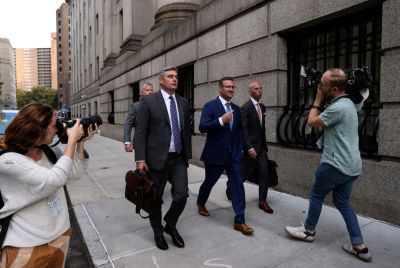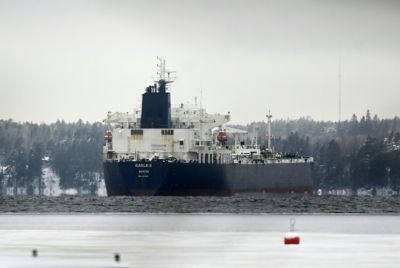EU hails new era as Lisbon treaty goes into force
BRUSSELS - The European Union hailed the start of a new era Tuesday after its Lisbon reform treaty went into force, carrying with it the bloc's hopes of become a more powerful force on the world stage.
The treaty, which aims to make EU decision-making smoother, creates a long-term president and enhances the powers of its foreign policy chief, is intended to give the 27-country bloc more political clout to match its economic weight.
A new era of European cooperation beings today, Swedish Prime Minister Fredrik Reinfeldt, whose country holds the rotating EU presidency until the end of the year, said in a statement.
Today the EU is a force to be reckoned with -- both economically and politically.
Briton Catherine Ashton started work immediately as foreign affairs chief. Belgian Prime Minister Herman Van Rompuy takes over as president of the Council of EU leaders on January 1.
But the impact of the changes under the treaty will not be felt overnight and the EU has struggled to assert itself as emerging powers such as China become more influential following the global economic crisis.
Although the Union is an important political and trading bloc representing nearly 500 million people, its leaders have often looked divided during the eight years it took to negotiate and ratify the Lisbon treaty.
They reached agreement on the appointment of Ashton and Van Rompuy only at the last minute last month, and critics say the choice of two leaders who are little known even in the EU raises questions about how the EU will raise its global profile.
I think it is good that the rest of the world reminds us that they would welcome some people with ideas and some drive. Unfortunately it is not a widely felt view in the EU, said Daniel Gros of the Centre for European Policy Studies.
NEW RULES
The Lisbon treaty changes the rules on how decisions are reached by the EU because decision-making has become unwieldy since the accession of 10 countries, mostly from eastern and central Europe, in 2004 and two more in 2007.
It hands more power to the European Parliament, which shares some legislative responsibilities with the European Commission -- the EU executive and a powerful regulatory body. Member states' leaders retain a lot of power.
I'm delighted that we now have the right institutions to act and a period of stability, so that we can focus all our energy on delivering what matters to our citizens, said European Commission President Jose Manuel Barroso.
The Commission said the EU would now focus on managing a smooth exit from the economic and financial crisis, which opinion polls suggest is the main concern of voters, many of whom regard the EU as out of touch with ordinary people.
Central to economic recovery will be reducing member states' bloated budget deficits and deciding when to stop emergency financial measures that were used to prop up the economy.
Gross domestic product is expected to rise by only about 0.7 percent in 2010 and official data show unemployment is expected to rise above 10 percent in the EU next year.
(Editing by Matthew Jones)
© Copyright Thomson Reuters 2024. All rights reserved.





















